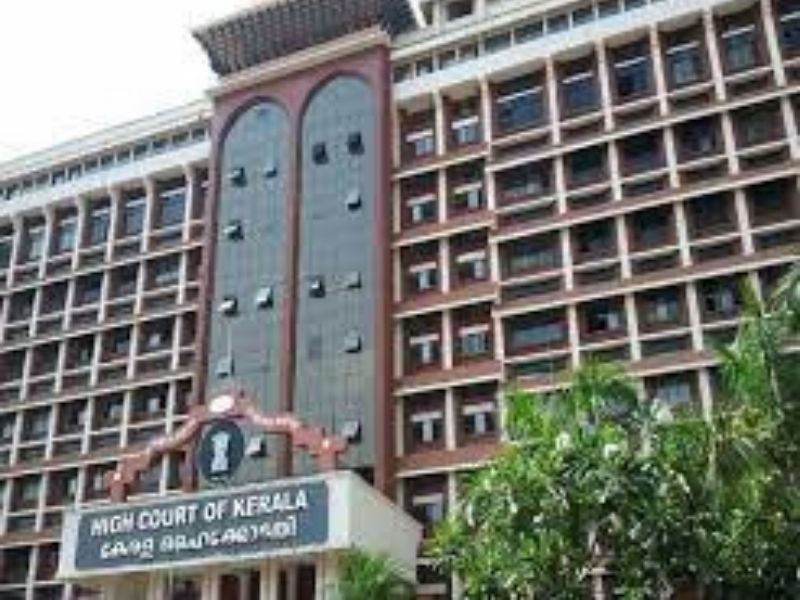The Kerala High Court refused to interfere with the state’s proposal to alter the examination pattern for Board exam students this academic year as opposed to the last one. In the proposed examination pattern, 70 per cent of the questions will be from the focus area and the rest 30 per cent from the non-focus area. Moreover, there will be 50 per cent choice questions for focus area and non-focus area.
According to Justice Amit Rawal, such a question pattern can help to identify the most eligible from the rest.
“Awarding of 100% marks to every student would defeat the purpose of the examination. In my view, it aims to achieve the best marks to the brighter students so as to get eligible opportunity and admission to their future studies.”
“It is settled law that the Court cannot sit in the armchair of the decision making authority or interfere in the policy of the Government to bring the case under the purview of judicial review. It is the right of the Government to change the policy and the writ of mandamus under Article 226 cannot be issued in a mechanical manner as sought to be achieved through instant writ petition.”
Three writ petitions were filed on behalf of Higher Secondary students assailing the Government order issued in December 2021 that established guidelines for teaching and preparation of question papers in connection with SSLC, Higher Secondary and Vocational Higher Secondary examination for March 2022. based on the guidelines submitted by the Director of State Council of Educational Research and Training (SCERT).
One of the petitions has also challenged the pattern of question paper prepared based on the above guidelines.
When the pandemic broke out in 2020, in an attempt to help the students, the Directorate of General Education came out with a workable solution for Plus Two General Examinations of the academic year commencing from March 2021.
It was proposed that students be provided with Focus Area Topics of each subject stipulated by SCERT to clear the General Examination in March 2021. Moreover, it was decided that for exams marked out of 80, 160 score questions will be provided. Similarly, for papers marked out of 60 and 40, 120 and 80 score questions will be provided respectively.
If more than the required number of questions were answered, only the best answer would be selected. It was also made clear that the students can score full marks if they concentrate on the Focus Area Lessons fixed by the SCERT.
The concept of focus area topic was designed to allow students to attempt 150% marks questions from a focus area and 50% from the non-focus area so that they can score well. The students were expecting the same pattern for the 2022 exams.
However, for the examinations to be conducted in March 2022, the State had decided to reduce the focused area.
The petitioners argued that this new scheme made it very difficult for a student to secure full marks. It was argued that an average student might secure 60-70% which is less than the cut-off mark required for securing admission to a professional course.
It was also argued that the Education Department had taken a thoughtless and painful measure by setting out the said pattern just to curb the massive number of A+ students received last year.
Nevertheless,Government Pleader Jimmy George submitted that the situation in 2020-2021 and 2021-2022 are glaringly different. During 2020-2021, a very less number of classes were conducted due to the nationwide lockdown and frequent regional restrictions.
The situation had improved drastically in this academic year, he submitted, pointing out all the initiatives the State had undertaken to let the students attend regular classes.
The Court agreed with the decision of the State and emphasised that fixing a small portion as focus area and providing 100% questions from the said portion would defeat the very purpose of examination which will eventually devalue the evaluation process.
Moreover, Justice Rawat felt that it was not commendable to limit only on the focus areas since all entrance examinations would be held as per the whole syllabus.
The students from Kerala Board will have to compete with the children from various boards of India and if the syllabus is delimited, it is likely to affect the future of meritorious students as students from the weaker sections may find it difficult to arrange private coaching classes for the remaining syllabus to clear the competitive examinations.
Therefore, finding no merit in the contentions, the writ petitions were dismissed.
Source: Live Law
Also Read: Kerala HC dismisses PIL against collection of school fees during lockdown
Posted in News, States



























